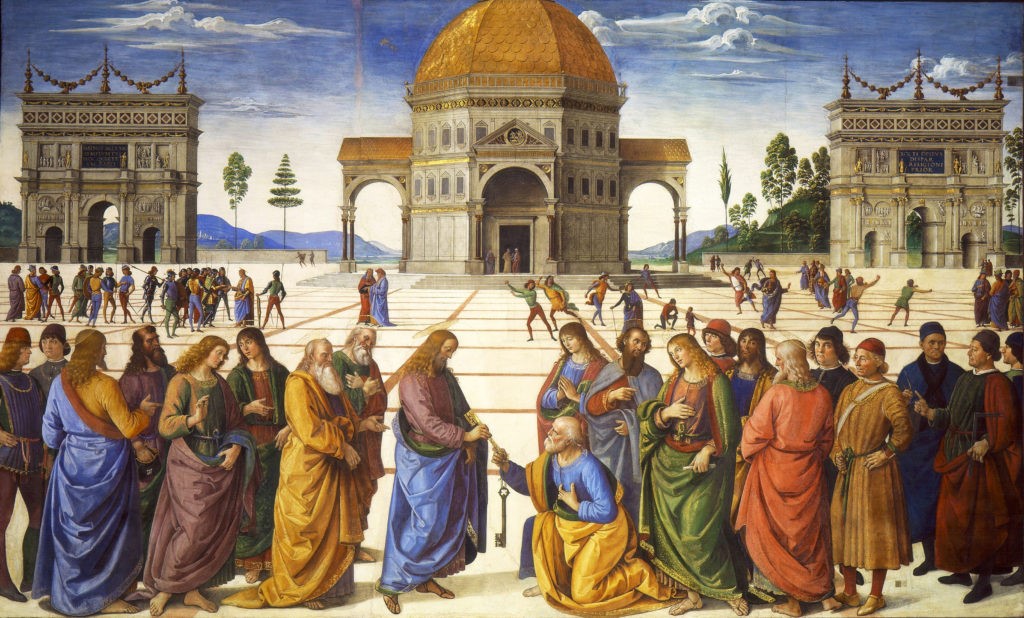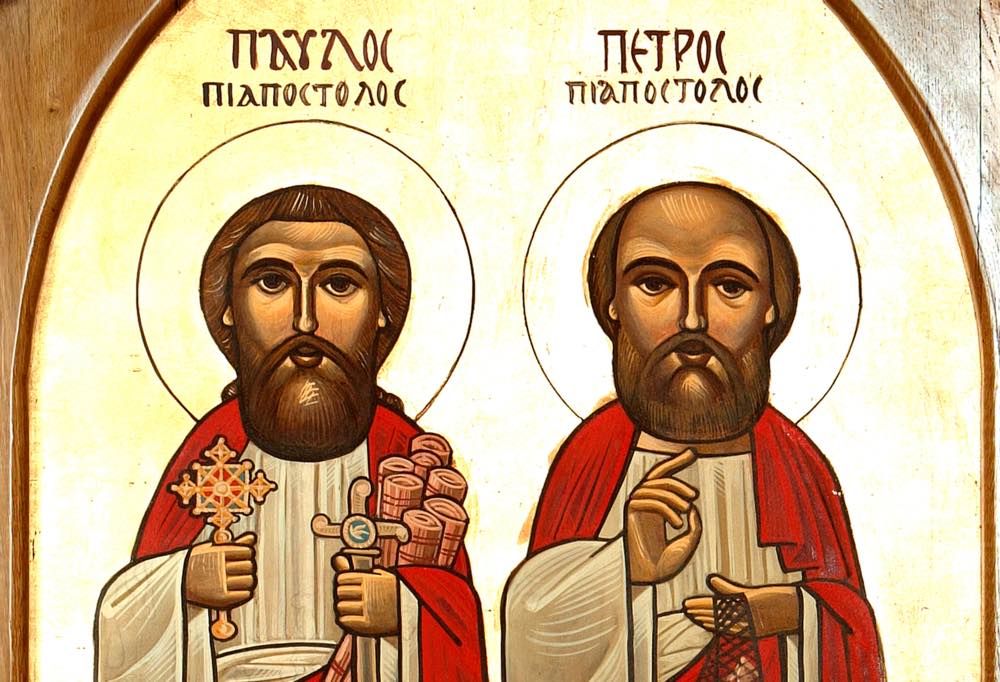Christ giving the keys to Peter (1481-1482), Pietro Perugino, Sistine Chapel (Vatican)
– Rev José Mario O Mandía
Jesus handpicked twelve men whose names are listed in the Synoptic Gospels (Matthew 10:2-4, Mark 3:16-19, and Luke 6:14-16) and in the Acts of the Apostles (1:13 excluding Judas Iscariot). Saint Matthew writes, “The names of the twelve apostles are these: first, Simon, who is called Peter …” (10:2). “Simon Peter” is first in the list of Matthew, of Mark, of Luke, and of the Acts, but Matthew emphasizes this fact: Peter is first – “primus Simon.”
There is something special about Simon. He is not only first in the list of apostles. His name appears more frequently than all the others. “Simon,” or “Simon Peter,” or “Peter” appears at least 184 times in the four Gospels and the Acts. The next runner-up is John whose name occurs 30 times, then James (brother of John – 24 times), then Judas Iscariot (23 times), Philip (16), Andrew (13), Thomas (12), James the Less (9), Matthew (9), Bartholomew (or Nathanael – 4), Jude Thaddeus (4) and Simon the Zealot (4). Remarkable, isn’t it?
There is something special about Simon. When he was first introduced to Jesus by his brother Andrew (cf John 1:40-41), “Jesus looked at him, and said, ‘So you are Simon the son of John? You shall be called Cephas’ (which means Peter)” (John 1:42).
“Jesus looked at him,” or gazed at him intently – “intuitus eum” – just as he looked at the young man (“intuitus eum” Mark 10:21) and called him. Then Jesus gives him a new name (cf John 1:42): Cephas (Hebrew for “rock”). In Matthew’s Gospel, Jesus explains the meaning of the new name. “Cephas” (in Greek “Petros”; in Latin “Petrus” and thus translated as “Peter”) means “rock” and was not used as a personal name. Jesus explained that the new name implied a new mission: “And I tell you, you are Peter and on this rock I will build my church, and the powers of death shall not prevail against it. I will give you the keys of the kingdom of heaven, and whatever you bind on earth shall be bound in heaven, and whatever you loose on earth shall be loosed in heaven” (Matthew 16:18-19).
On a number of occasions, Jesus singles Simon Peter out.
For example, in Luke 22:31-32, Jesus tells Peter: “Simon, Simon, behold, Satan demanded to have you, that he might sift you like wheat, but I have prayed for thee that thy faith may not fail; and when thou hast turned again, strengthen thy brethren.” Note the shift from the plural (referring to all the apostles) to the singular (referring to Peter).
In the agony in the garden, Jesus asks Peter, James and John to pray and watch with him. What happens? “And he came and found them sleeping, and he said to Peter, ‘Simon, are you asleep? Could you not watch one hour?’” (Mark 14:37-38; see also Matthew 26:40-41). Jesus expects more devotion from Peter, demands more loyalty from him.
In Luke 5:3-10, the Lord gets into Peter’s boat, performs a miracle that moves Peter to fall on his knees before Him. But “Jesus said to Simon, ‘Do not be afraid; henceforth you will be catching men’” (v 10).
In John 21:15-17, the Lord only asks Simon, “Do you love me?” He asks him three times, and three times Jesus gives him an assignment: “Feed my lambs.” “Tend my sheep.” “Feed my sheep.”
Were all the apostles of the same rank? No. One of them was first.


 Follow
Follow


